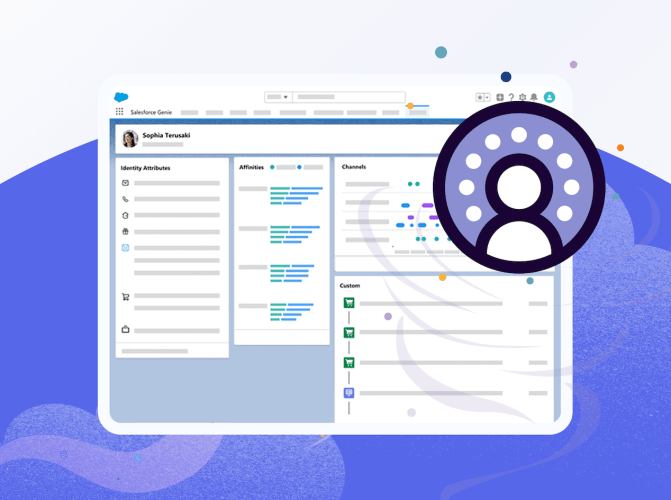Why Every AI Project Should Begin as a Data Project



Data is your most important strategic asset; don't let your team stumble with improper prep.

Stephanie Jensen
Seventy-seven percent of business decision-makers recently reported that they fear missing out on the benefits of generative artificial intelligence for their companies. Not wanting to be left behind, many companies are moving full steam ahead. They hope to take advantage of the benefits AI promises, such as faster decision-making, increased operational efficiency, and improved customer satisfaction. But are they ignoring data preparation and moving too fast?
There’s a risk in launching AI projects without making sure your organization is ready. In fact, new research shows that good data preparation is the single most important action you can take if you want to successfully implement generative AI. That’s because if you train your AI models with deficient data inputs, the results will lead to inaccurate outputs.
To understand how and why that happens, we’ve outlined three hypothetical use cases of both effective and ineffective data preparation and the impact on AI success.
Say hello to Einstein Copilot
Your trusted conversational AI assistant for CRM gives everyone the power to get work done faster. It’s a total game-changer for your company.


Data preparation leads to AI success: three use cases
1. AI enhances efficiency
Imagine a sales team at a tech company, let’s call them “Futurix Dynamics.” They’ve cleaned and normalized all the data that’s stored in their customer relationship management (CRM) tool. This data preparation ensures accurate customer profiles and well-documented sales interactions. When they launch new AI capabilities for their CRM, the AI assesses existing data and gives them insights on potential leads and upselling opportunities. Even better, it can then generate emails for the sales reps, and provide them with automated call summaries any time they interact with a customer. As a result, their team spends less time typing and more time closing deals, significantly boosting their sales efficiency.
Over at “HumanisTek Inc.,” a competing tech firm, the management rushes into AI implementation without proper data preparation. Their CRM is cluttered with outdated contacts and inconsistent sales data. As a result, their AI platform frequently suggests irrelevant leads based on outdated customer information, leading to missed opportunities and frustrated sales staff who constantly have to correct data errors. Sales reps also have to spend too much time proofing the AI-generated emails, as they are frequently incorrect, so the efficiency AI promises is never realized.
2. AI improves accuracy
At “HelpDeskers,” a customer service company, good data preparation means their AI system understands and categorizes customer queries correctly. They have faster resolution times and highly personalized service. Also, the AI system can identify specific issues as they arise (through a spike in calls, for example) because the data sources are complete and updated regularly. It then gives the team the information they need to proactively address problems and improve overall customer satisfaction. AI-generated reports let management know which topics are generating the most calls, so they can make good staffing and training decisions for the call center.
In contrast, “QuickFixing” doesn’t prioritize data cleanliness. Calls aren’t coded correctly in the system, and they aren’t tracking call topics along with the date and time of the call. Because the data is incomplete and sometimes inaccurate, AI can’t contextualize customer complaints. The service team doesn’t get the information it needs on trending issues, so they can’t be proactive or prepared to solve them. This not only frustrates customers but also in the long term it can result in misguided business strategies. Since management can’t clearly see these issues evolve in real time, they make decisions based on inaccurate insights.
3. AI surfaces insights
“Trendists,” a market research firm, has a dedicated data analyst who ensures that all data fed into their AI system is current and comprehensive. As a result, AI provides the analyst with dynamic, insightful reports that accurately reflect market changes and customer behavior. These reports enable the analyst to give their manager strategic recommendations, keeping their company ahead of market trends.
On the other hand, at “Static Analytics, Ltd.,” another market research firm, the information fed into the system is often outdated. Their data analyst is now dealing with an AI system that can’t provide accurate forecasts and relevant recommendations. And this means they can’t provide their manager with the real-time insights needed to make informed decisions, causing the company to lag behind its competitors.
Data is your most important strategic asset, and it’s foundational for successful AI. But in order to realize the potential of your data – and see the benefits of your AI initiatives – you need to lead with a data-first mindset and prioritize data preparation.




























